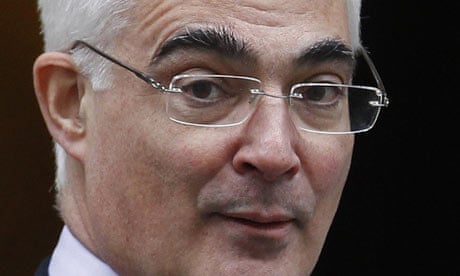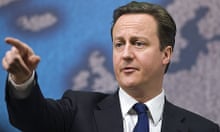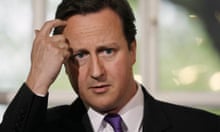Alistair Darling told the City's top bankers today to stop feeling sorry for themselves and instead work with the government to create a stronger financial system.
The chancellor held clear-the-air talks with eight UK and foreign-owned banks at the meeting of the World Economic Forum in Davos at which he urged faster international action to strengthen banking regulation.
"My message to the banks is that it is in their interests to get off the front pages," Darling said at a press briefing ahead of the meeting.
"The banks should do what they are supposed to do, provide credit to the economy. They must know that changes are necessary. They can all see that the regulatory regime needs to be more robust and more intrusive.
"Don't feel sorry for yourselves. Work with the government to see how you can improve the situation."
Today's meeting involved executives from Standard Chartered, HSBC, Barclays, Goldman Sachs, UBS, Morgan Stanley, JP Morgan and Citigroup.
The chancellor said he was frustrated that changes to bank regulations proposed by the G20 group of developed and developing nations were taking so long to be agreed by the Basle committee of central bank governors and international regulators.
"The Basle process can be quite tortuous," Darling said. "We don't have years to sort it out."
He added that he was disturbed by reports that proposed reforms to the global financial system – originally expected this autumn – now looked as if they would be delayed until 2011.
"I would like to see the Basle regulations published this autumn," Darling said. "I have heard it may slip into next year. That would be very, very bad."
The chancellor said that countries around the world had acted in concert during 2009 to haul their economies back from the brink. But having prevented recession from turning into depression, there was now a risk that reform would be seen as less urgent.
Asked whether there was a risk of a double-dip recession, Darling said: "Provided we stick to the course we have set we will see growth sustained."
Britain barely emerged from six quarters of recession in the final three months of 2009, posting quarter-on-quarter growth of 0.1%.
Darling said: "I said growth would resume around the turn of the year but that people should be pretty cautious about it. We have come through a pretty major downturn. You can't pick yourself up, and dust yourself down as if nothing has happened."
Both the chancellor and the business secretary, Lord Mandelson, attacked David Cameron for his plan to make emergency spending cuts in the event of a Conservative victory in this spring's election.
The chancellor said: "The risk is that if you start taking money out of the economy this summer you will set back the progress we have made and derail the economy. I think that would be very damaging."
Mandelson said he detected some softening of the Tory line on deficit reduction. "There is less conviction and swagger than there was before. They have gone a little bit wobbly. They appreciate the risks a bit. It has pushed them into some confusion."



Comments (…)
Sign in or create your Guardian account to join the discussion